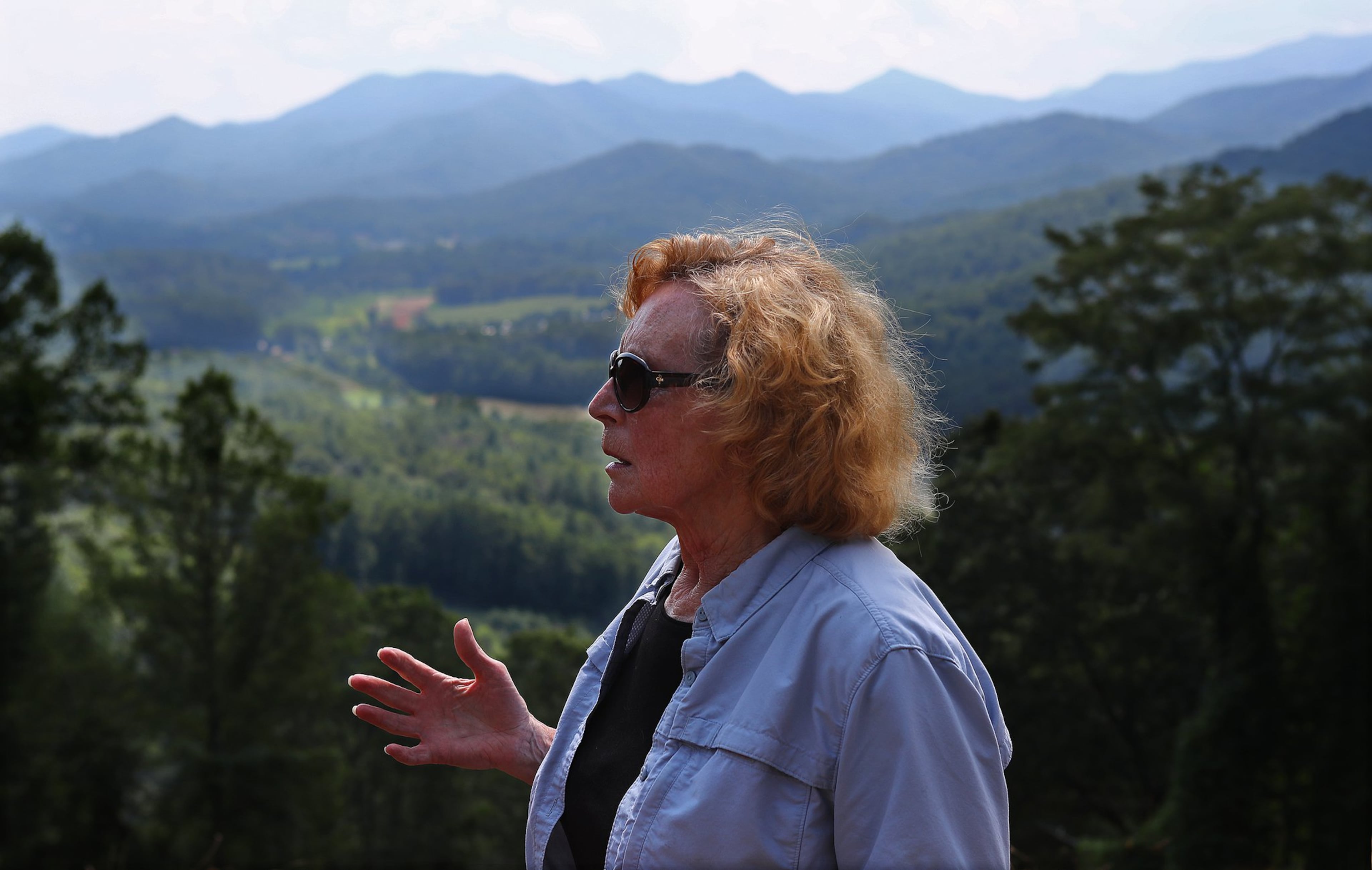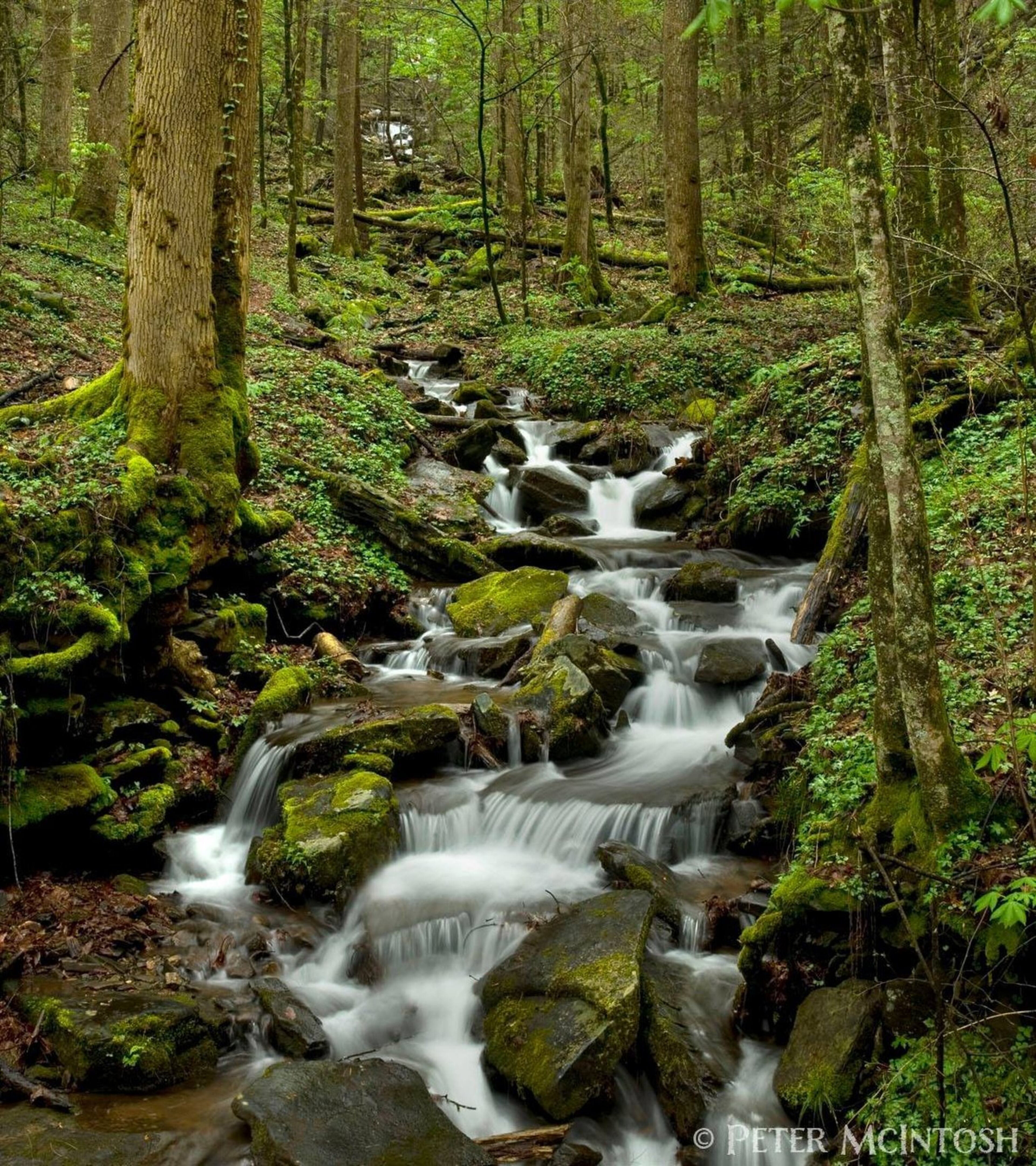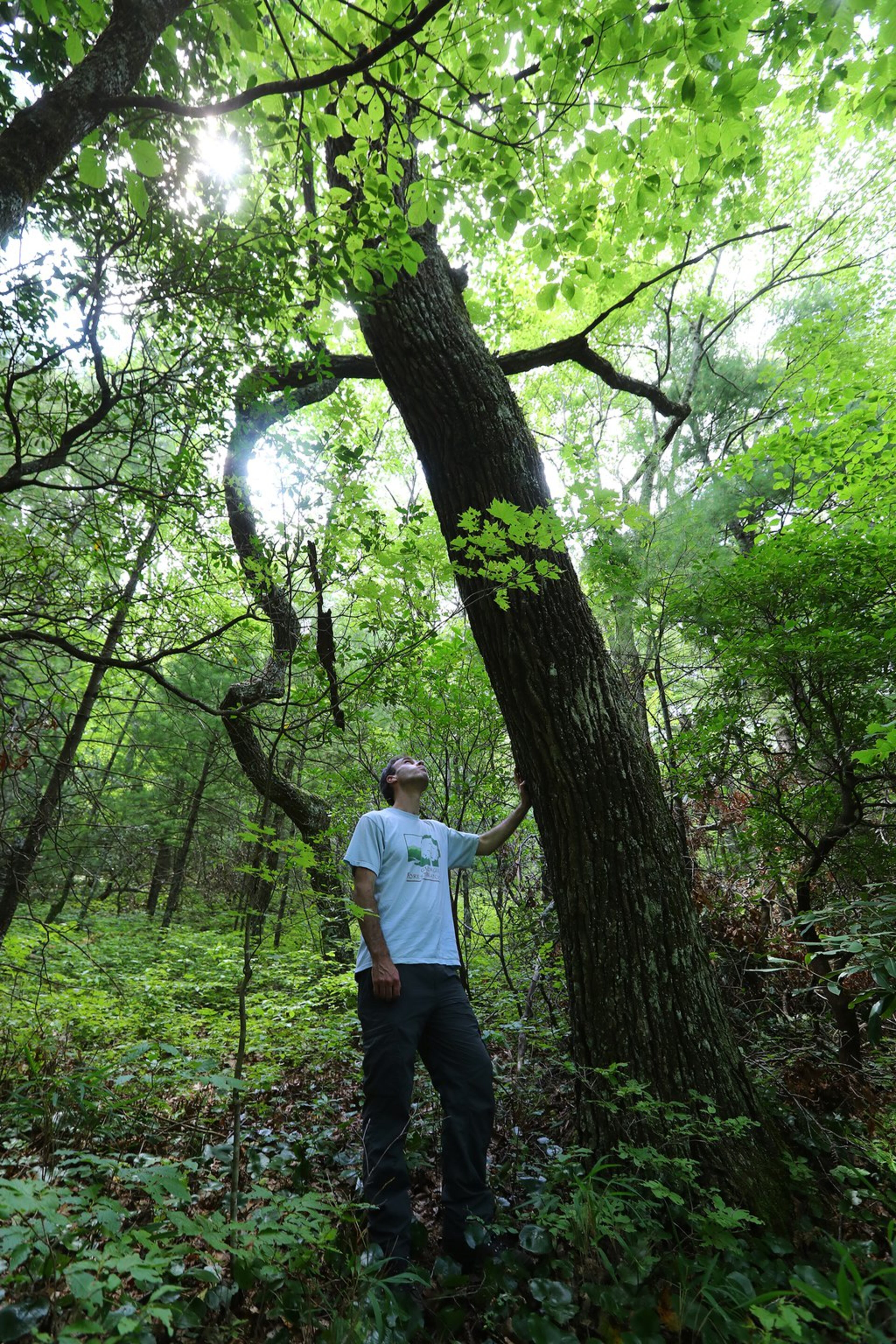Forest Service plan would speed up timber projects in national forests

Brenda Smith thought of her father as she stood at the edge of the Sky Valley Overlook, where she brings her dog every evening to watch the sun fall behind the North Georgia mountains.
Her father once worked on a logging crew, during the years when industrial timber companies nearly picked these mountains clean. Smith, 74, said she doesn’t ever want to see these woods as he did, as a scarred wasteland, but fears that will happen if the federal government gets its way.
Earlier this year the Trump administration proposed loosening environmental rules to speed up cutting trees in national forests, eliminating longstanding requirements that environmental studies and public feedback be considered first. The U.S. Forest Service says it wants to cut government red tape so it can do more to fight wildfires, like the ones that raged across thousands of Georgia acres in 2016.

But environmental groups are raising alarms, saying the proposal threatens the trees that make the Blue Ridge Mountains blue. The public would have no advance access to plans for cutting timber on up to 4,200 acres — enough to shear the faces off a cluster of mountains. Nor could watchdogs look for errors that might cause silt or chemicals to seep into the Chattahoochee River, Atlanta’s water supply whose headwaters are high in the national forest.
“I’m very worried,” said Smith, a member of the Georgia ForestWatch preservation group based in Dahlonega. “If we don’t have any input, and we don’t have any notice, I’m just afraid that all this natural land will be cut.”
Forest Services will accept public comments on the proposed rule change until Aug 26.
"We're about to fight the most important battle that we've ever faced since the Forest Service started. If this goes through, we're done." —Buzz Williams, founder of the Chattooga Conservancy.
According to a statement from the federal Department of Agriculture, which oversees the Forest Service, 10 years of data show much of the agency’s environmental studies to be redundant. But the requirements have created a massive backlog in issuing permits to clear out combustible materials that feed forest fires, such as undergrowth, rotting debris and foliage.
“With millions of acres in need of treatment,” Department of Agriculture Secretary Sonny Perdue, Georgia’s ex-governor, said in a press release, “years of costly analysis and delays are not an acceptable solution — especially when data and experience show us we can get this work done with strong environmental protection standards as well as protect communities, livelihoods and resources.”

Watchdog groups say the policy could mean a tourist returning to a favorite mountain cabin and finding the balcony view sheared of its trees. Or scenery surrounding favorite campsites and hiking trails bulldozed to hang power lines. Or new roads cut through wildlife habitats, so trees as old as the country can be carried off on flatbeds.
“We’re about to fight the most important battle that we’ve ever faced since the Forest Service started,” said Buzz Williams, founder of the Chattooga Conservancy. “If this goes through, we’re done.”
Input has impact
Plenty of times, the Forest Service has scaled back projects after environmental groups pointed out fallacies. In a step under the current system called “scoping,” the agency sends detailed descriptions of proposed projects to anyone who asks to be on its distribution list.

In the Warwoman Wildlife Management area in Rabun County, the Forest Service would have allowed a section of rare, virgin forest to be logged had Georgia ForestWatch not spoken up. Environmental groups also stopped a spur road from being lengthened, which could have dumped sediment into Tuckaluge Creek.
Another forest-thinning project between Dahlonega and Blue Ridge was reduced from about 7,000 acres to 713 acres because the Forest Service had incorrect data on the type of trees there. A similar plan for Brawley Mountain was cut back from about 700 acres to 300 acres. ForestWatch and the Sierra Club are currently suing the federal government over a controversial plan to thin thousands of acres in the Cooper Creek watershed.
ForestWatch executive director Jess Riddle said government foresters will study topographical maps and make site visits, but then make overly optimistic projections. Those who regularly explore the woods, as he does, can recognize potential hazards, such as when a slope is too steep for the type of logging being proposed. About 1,100 acres of thinning has already been nixed from the Cooper Creek project because of erosion and sediment concerns.
The Forest Service was born out of conservationist reforms of the early 20th century that created protected forests, including Georgia’s Chattahoochee National Forest that stretches over 18 counties and 750,000 acres. The agency manages the lands for multiple users — hunters, trout fishers, birdwatchers, ATV riders and fall tourists, as well as the complex ecosystems of plants, birds, insects, amphibians and mammals.

Commercial logging is a managed use, too, but typically only when cutting down trees is deemed good for forest health. David Neely, Forest Service’s Washington-based acting deputy director for forest planning and NEPA compliance, said timber harvesting would be included under the adjusted rules for projects such as clearing pine beetle infestations or removing aging paper birch trees that pose a fire risk.
“This is not a category designed just to put board feet on their way to the mills,” Neely said. “The purpose of this is for restoration.”
Neely said environmental groups can still find out about plans through Forest Service's online schedule of proposed actions. Watchdogs say that list lacks specifics and often posts projects after they've been permitted.
Neely said in the case of a sweeping project with potential to alter the landscape, field supervisors may still choose to engage the public to the extent they fit.

“What we’re really trying to do here is to right-size the level of public engagement for the scope of the project and the relative impact,” Neely said. “If what we’re doing is a relatively minor action, it may be that the responsible official says that the most appropriate thing to do is to reach out the county commissioners and the local elected officials and state agencies, and see if they have any concerns, being representatives of their constituents.”
Shutting down feedback
If the change goes through, litigation will certainly follow, environmental groups say. They say the proposal would be catastrophic for transparency — with more than 93% of Forest Service decisions requiring no public notice or public comments and projects undergoing environmental assessments reduced by three-quarters, according to an analysis by the Southern Environmental Law Center.
Along with sweeping timber projects, the federal agency would no longer have to give out details on plans to build up to five miles of road. Or for bulldozing of up to 20 acres for utility rights of way, such as pipelines and power lines.

Patrick Hunter, an Asheville, North Carolina-based Southern Environmental Law Center staff attorney, said the proposal appears to be emanating from President Donald Trump, whose administration has worked to upend environmental protections in favor of commercial interests. In 2018, the White House announced plans to overhaul National Environmental Policy Act procedures.
Hunter said he can imagine a scenario where logging interests take precedence over ecology.
“I don’t think anyone at the Forest Service has the intention of messing up water quality,” the attorney said. “But when you’re being pressured by an administration that’s saying, ‘Get out the timber cuts,’ and then saying you don’t have to do this environmental analysis – that’s a perfect recipe for introducing mistakes and errors and unexpected consequences from these types of activities.”

Neely, of the Forest Service, said the agency has been working on a revamp of NEPA procedures since the years of the Obama administration.
PUBLIC COMMENT ON PUBLIC ACCESS
The public has until Aug. 26 to weigh in with the U.S. Forest Service on a proposal to overhaul its compliance obligations under the National Environmental Policy Act. For most of the agency’s projects, the change would eliminate requirements that it distribute detailed plans beforehand, solicit public input or do extensive environmental studies.
Comments can be posted at www.regulations.gov/docket?D=FS-2019-0010.
They can also be emailed to nepa-procedures-revision@fs.fed.us, or mailed to NEPA Services Group, c/o Amy Barker, USDA Forest Service, 125 South State Street, Suite 1705, Salt Lake City, UT 84138.
So far, the Forest Service has received more than 14,000 comments, the majority of them urging that the proposal be rejected. A sampling:
“By exempting projects of up to 4,200 acres from being subject to public comment period, these new policy changes are silencing community voices while giving a handout to the logging industry in the process. The provisions of this policy change could have a devastating impact on some of favorite National Forests, like White Mountain National Forest in New Hampshire.”
“I live next to the Ocala National Forest in Marion County Florida and it amazed me how much of the woods was controlled by timber companies … I am most alarmed that the rule proposes to cut public participation from the vast majority of Forest Service decisions.”
I can understand the Forest Service’s frustration with opposition to management plans coming from amateur environmental groups … But the national forests belong to us all, not to the Forest Service, and the public has a right to comment and correct plans that do not take into account the variety of uses and purposes to which the public is now putting the forest - hiking, birdwatching, hunting, recreation and relaxation.”
“I am for your idea of making the National Environmental Policy Act easier and more efficient to use. I hope you can make this change.”
“I live next to Cherokee National Forest and I’m concerned that this administration will let logging, mining and anything else that would make Trumps friends a buck without caring what it does to the forest. Please stop these horrible changes from happening.”


